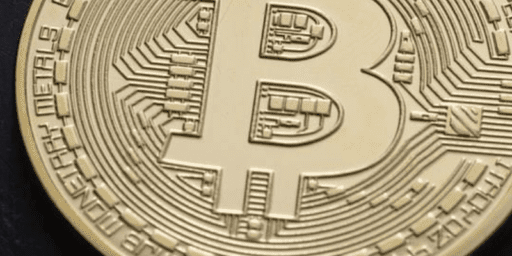Reader Mail: What to do with $5,000?
Here is an email from a young reader who has put himself in a very good financial situation. Mark has $5,000 sitting around and is wondering what to do with it.
I’m in a situation that I’m sure many would envy, but I’m stuck. Through a combination of income tax returns and unintentional savings, I have about $5,000 just sitting around, and I don’t know what to do with it.
Here is my situation:
- Mid 20’s, have been working for about 2 years.
- Currently renting – would like to buy property in the next 5 years.
- I am currently debt free (no mortgage, no CC debt, no car, nothing).
- My TFSA is maxed out for the year (5k in a HISA)
- With my current rate of regular paycheck contribution to RRSP through personal passive saving and a Group RRSP plan through work, I will only have about ~1-2k left in contribution room at the end of the year. (All RRSP money is invested in low MER index funds)
- There is nothing in particular that I want to spend the money on.
So I’m not sure what to do with the money. I suppose the best idea is to stash it to eventually use it for the down payment on property. But I don’t want it to just sit around in the meantime, and HISA’s are paying next to nothing at the moment.
I know you’re not an advisor, and I’m not asking for advice per say, just for some ideas on investments with a 5-year time frame.
Before we get into the details, I would like to congratulate Mark on being is a strong financial position at a young age. There are not many 25 year olds out there that can say that they are completely debt free with the problem of having too much cash.
Mark is looking for some ideas on what to do with the money. To start, lets look at his goal. In 5 years, he plans to purchase a property which means his $5,000 could go towards a portion of the down payment. With this in mind, he could either continue maxing out his RRSP (1-2k room) and put the remainder in a 5 year GIC. Even with today’s low interest rate environment, if you look hard enough, you can find rates in the mid 3% range. It’s not much after taxes, but better than current high interest rate savings accounts.
The reason why I suggest a RRSP contribution is because he can use the RRSP home buyers plan to go towards the down payment of his home. With Mark’s strong savings habits, I doubt it would take him long to repay the HBP.
Another solution would be to put the money in a 1 year GIC, then move the $5,000 (+ interest) into a GIC within a TFSA next year. That way, the GIC growth over 4 years can accumulate tax free.
I tend to steer away from investing in the market unless you can stay invested for at least 10+ years. One might predict that with today’s suppressed market prices that it’s a no brainer the markets will be higher in 5 years. However, the truth is that no one can say where the markets will be at that time. If you “need” the money in the near future, I think that it’s best to preserve capital with guaranteed instruments.
So that’s what I think, GIC’s all the way. What are your thoughts? What would you do in Mark’s situation?
I've Completed My Million Dollar Journey. Let Me Guide You Through Yours!
Sign up below to get a copy of our free eBook: Can I Retire Yet?










FT,
Did Mark make a decision and get back to you?
moneygardener likely has it right. If you need money for anything in a 5 year horizon, protection of principle needs to be the first order of business. You’ll get no real return and your purchasing power is bound to shrink a little but if you know you want the money in that horizon, stay away from most anything else.
This is an easy one. Save the money for a home downpayment in a non-equity vehicle (money market fund, bond fund, gic, savings account, etc.). 5 years is too short to invest in the stock market. Yes, you will get low returns, but if the need is less than 5 years from now then it is what it is.
A future home downpayment is a good use for the money. I would suggest maxing the RRSP and utilizing the HBP if possible first.
The time to start buying into the market was when the S&P 500 was at 666 (around March 9th).
Just because markets are up 40% from their lows, it doesn’t mean we’re in a new bull market. Maybe it is, but please be aware and comfortable with the risks…
Just look at Japan:
http://www.planbeconomics.com/2009/05/12/the-suckers-rally/
Or look at the US in the 1930s:
http://www.planbeconomics.com/2009/05/15/were-tracking-the-1930s-bear-market/
I’m as well in a similar situation (I wonder how many other 20-something’s are in the same spot in life)….
Im 24, good paying job, renting, only debt is a 6 grand student loan @ 3.25% interest rate.
Its the question, do I start investing my money or pay down my student loan at a guaranteed 3.25% savings. (Specially with this economy, a guaranteed 3.25% seems smart….? OR, do I take advantage of a down market, and put a few grand into the market place….
I haven’t maxed out my RPS’s or TSFA… but want to buy a house down the road. Maybe focus on both?
I like your thinking contrarian…now is the time for buying great dividend companies (equity) if you have extra cash!!!
There is only one thing I know about investing. Do what everybody else isn’t doing and it will pay off. I am reading so many defensive strategies that I do indeed it’s time to buy back into equities with conviction. I have never read as much about GIC’s. Means it’s time to get out of them. My only reason: contrarian.
I’m in a very similar situation … 23 years old … RRSP maxed (for HBP), TFSA maxed, no debt, no rent, 10k in savings.
I’m not sure when I’ll be buying a house. Could be next month, could be next year…. so I’m keeping my cash in a regular savings account so I don’t have to jump through hoops to get it when I need it
I totally agree with Div. Growth Investor…
If I were Mark, I would purchase one or a few dividend stocks.
Continue to re-invest the income back time and time again into more shares.
$5000 invested today could generate $5000 in income in another 30 years, no doubt at all.
If he doesn’t want to invest $5 K, invest 4 or 3 K and have fun with the rest.
I think many of you are missing the point, enjoy life while you can.
Life is for the living :)
I would definitely recommend the purchase of a personal residence soonest possible… In the interim you can do MUCH better than a 3% return on your money. Even though we ARE living in turbulent economic times I know of a number of MIC funds (mortgage investment corporations…) that are still returning yields of 8% – 12%. These funds are secured by way of mortgages on real estate, and have historical, similar yields dating as far back as 1994…. They have successfully operated through turbulent times before…
They will accept a $5,000.00 investment.